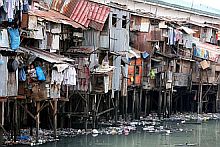Our environment in crisis - A case study from India
|
SAEON eNews has received a case study on environmental crisis from Prof Manisha Shekhar from the Uttar Pradesh Technical University in India, one of the largest technical universities in Asia.
In the case study Prof Shekhar points to the current economic and political errors that lead to devastation of the environment and human wellbeing. Her research shows that economic growth is based on exhausting available resources that cannot last forever. She cites figures that reflect the negative impact of globalisation on world economies, especially those in the Third World. Competition between countries has been found to lead to a deterioration in the wellbeing of their citizens, with the richest earning an income 74 times the income of the poorest.
On another level, Prof Shekhar’s research reflects how people all over the world are beginning to be affected by regional and global environmental changes. These drastic environmental problems are mainly the result of unsustainable lifestyles, over-consumption and unhealthy patterns of development. Environmental problems are likely to hit the poor and marginalised first — and with the most drastic consequences — but will sooner or later also affect the privileged.
Unless curbed (through wide ranging, structural changes), these global environmental trends threaten to cause havoc to whole ecosystems and essential life-supporting systems. This may in turn lead to an immense, unprecedented crisis for the whole of humanity.
Prof Shekhar points out that it is of utmost relevance for health workers to understand the links and interconnections between health and the environment, as well as underlying factors such as social, political and economic structures which determine the current patterns of development.
“Ultimately, the health and environment crisis relates to issues of social justice. Analysing health in an ecological and environmental framework calls for a broad, intersectoral, holistic understanding of health. It shows how many of the pressing health and environmental problems of today share the same root causes and the same barriers to being effectively tackled and solved. It encourages a long-term perspective on health and its future challenges. And it provides examples of how people — or ‘civil society’ — can successfully influence current thinking and policies,” she says.
Read Prof Shekhar’s case study for these and many other relevant impacts that influence our environment.





